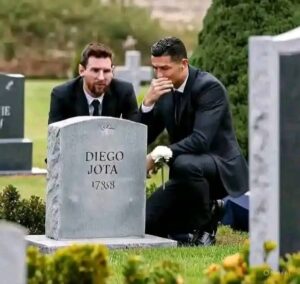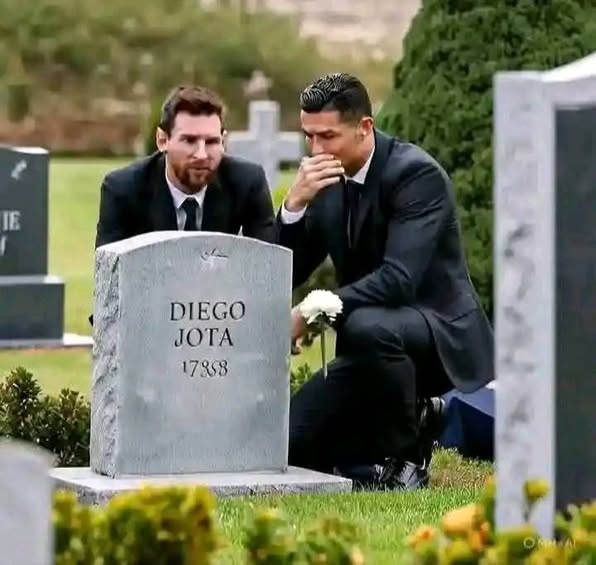Today, we lay Diego Jota and Fabinho to rest.
The cemetery sat quiet at the edge of the old town, where tall trees bowed as if in mourning and the wind whispered secrets only the grieving could hear. The morning was cool, the sky a dull gray, soft rain dampening the grass — not a storm, just a quiet weep from above.
The black hearse rolled in slowly, its arrival marking the moment when silence shifted from stillness to sorrow. Friends, teammates, and loved ones gathered under a sky that seemed unsure whether to hold back or break open entirely. The priest stood beneath the chapel arch, his eyes downcast, palms folded around a damp prayer book.

Two coffins. Side by side. Diego and Fabinho — gone, and yet everywhere.
Mothers stood shoulder to shoulder, held up by trembling hands. A pair of boots, one from each man, was placed at the foot of the caskets. A final tribute. The murmurs of the crowd faded as the service began, and all that remained was a single moment stretched across time.
One by one, they rose to speak.
A childhood friend spoke of Diego’s wild laughter, how even as a boy he played as if the world depended on his joy. A former coach choked through a memory of Fabinho’s quiet leadership, how he once gave up a winning goal to check on a fallen opponent. Every story deepened the ache—and yet, strangely, lifted the weight just enough to breathe.
As the final words were spoken — “May their souls find eternal peace” — the wind picked up and the clouds parted slightly, letting a soft sliver of sun through. It struck the headstones just as the soil was shoveled, golden light meeting fresh earth.
The day didn’t heal anyone. It wasn’t meant to. But it carved out a sacred space—a moment where love, grief, and remembrance met in stillness.
And in that stillness, they were not gone. Not entirely.




